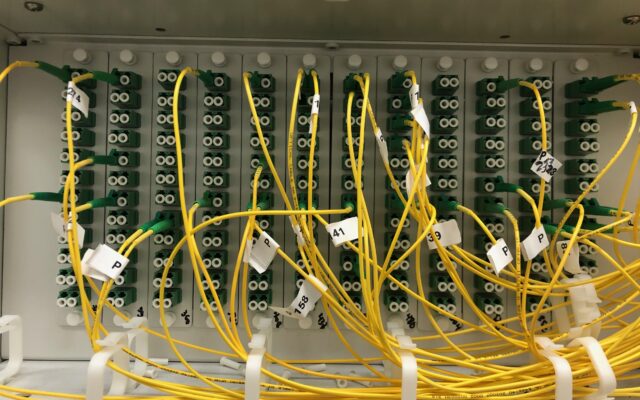
With access to reliable high-speed internet at stake, Mainers have a chance to ‘Correct the Dots’
PORTLAND — The Maine Connectivity Authority has launched a critical public education campaign called Correct the Dots, a call to action for individuals to check their addresses on new federal internet maps and to file a challenge if the information is incorrect.
“High-speed, reliable internet is critical to Maine’s future. Right now, across the state, small businesses and families are at a disadvantage because they don’t have access to reliable broadband internet. One of the first steps in expanding broadband to areas that need it most is to make sure that the federal government has correct information on where broadband is available and where it is not,†said Andrew Butcher, president of the Maine Connectivity Authority. “The internet maps will help to determine how federal resources are divided among the states and how those resources are spent on improved internet. If we want Maine to have the resources needed to reach everyone, we need the maps to be as accurate as possible.â€
Mainers have until Jan. 12 to check their address and file a challenge to the information in the new maps, which were created by the Federal Communications Commission.
“It’s simple to check your address and to help us to Correct the Dots,†Butcher said. “We have already identified hundreds of errors in the new internet maps. We need everyone’s help. The process to file a challenge is simple and only takes a couple of minutes, but the results could help us improve reliability for Maine people and ensure every community in the state can access affordable, high-speed, that works.â€
Two types of challenges can be filed. The first is to correct inaccurate information about the type of service at your home, camp or business. The second is to challenge whether reliable broadband is available at that particular location.
The steps to check your address and file a challenge are easy:
- Use the map at https://www.maineconnectivity.org/challenge to check your address.
- If the information about the broadband service offerings available at your home, camp or business is incorrect, click availability challenge. Fill out the form and click submit.
- If there is not a point on your home, camp or business, drop a pin on the map and click Location Challenge. Fill out the form and click submit.
- Encourage your friends and neighbors to check their addresses, too.
Last year, President Joe Biden signed the Infrastructure Investment and Jobs Act into law. This Act includes a significant investment of $65 billion to help close the digital divide and ensure that all Americans have access to reliable, high speed and affordable broadband.
The Broadband Equity, Access, and Deployment Program, provides $42.45 billion to expand high-speed internet access by funding planning, infrastructure deployment and adoption programs in all 50 states, Washington D.C., Puerto Rico, the U.S. Virgin Islands, Guam, American Samoa, and the Commonwealth of the Northern Mariana Islands. Each will receive a minimum of $100 million to fund the construction of reliable high-speed internet. The additional money will be distributed to states based on the number of unserved locations.
“Millions of dollars – and our ability to connect Maine communities – are at stake. We have to Correct the Dots and make sure the federal government has the most accurate information possible,†Butcher said.
Established in 2021, the Maine Connectivity Authority is a quasi-governmental agency charged with achieving universal access to affordable high-speed broadband in Maine and is designed to proactively address the state’s connectivity needs while managing the unprecedented influx of funding for the development of the state’s broadband infrastructure.
Led by an experienced staff and board appointed by Gov. Janet Mills, the MCA will work to ensure three goals: That effective, accessible connectivity be universally available in the state; that there be secure, affordable, reliable, competitive, sustainable, and forward-looking infrastructure that can meet future needs; and that all residents, businesses, and institutions in Maine be able to take full advantage of the economic, health, educational and other opportunities available through connectivity services. For more information go to maineconnectivity.org.